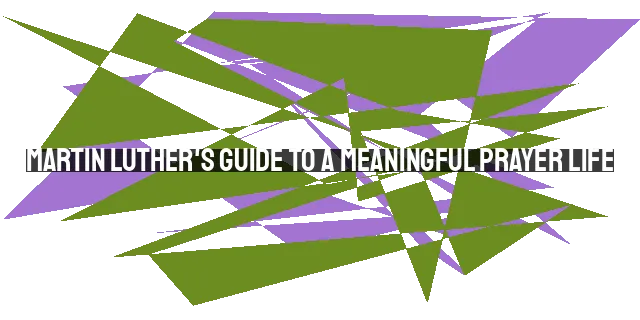Understanding the Divine Council in the Bible: Heavenly Beings and God's Plan
The Divine Council: Understanding Heavenly Beings in the Bible
Have you ever wondered about the heavenly beings mentioned in the Bible? What is the “divine council” referred to in several passages? Is it a group of gods vying for power and control, or something else entirely?
In this article, we will explore the concept of the divine council in the Bible and gain a deeper understanding of the role of heavenly beings in God’s plan.
What is the Divine Council?
The term “divine council” refers to a group of heavenly beings or “gods” who are mentioned in several passages of the Bible. These beings are often depicted as sitting in council with God and participating in his decisions.
For example, in 1 Kings 22:19-23, the prophet Micaiah has a vision of God sitting on his throne and the heavenly host standing around him. In Psalm 82, God is depicted as judging the “gods” in his council and rebuking them for their unjust behavior. And in Job 1:6-12, the “sons of God” come before God and Satan to present themselves and discuss Job’s faithfulness.
For Israel’s neighbors in the ancient Near East, such councils reflected polytheistic worldviews, where rival gods vied for power and supremacy. However, for Israel, the members of the divine council, though heavenly and supernatural, remained subject to the providence and decrees of the one Creator God.
As the biblical scholar Michael Heiser notes, “The biblical writers had no problem imagining an assembly of supernatural beings who served Yahweh, the God of Israel, and were subordinate to him. For them, the idea of a divine council wasn’t a challenge to monotheism, but a natural extension of it.”
Who are the Heavenly Beings in the Divine Council?
The heavenly beings in the divine council are often referred to as “gods” or “sons of God” in the Bible. While some scholars argue that these beings are simply angels, others suggest that they may be a distinct class of heavenly beings with a different role and function.
For example, in Psalm 82, the “gods” are rebuked by God for their failure to act justly and defend the weak. This suggests that they have some level of responsibility and authority in the world, beyond that of mere messengers or servants.
Additionally, in Job 1:6-12, the “sons of God” are depicted as presenting themselves before God and participating in a conversation about Job’s faithfulness. This again suggests a level of authority and responsibility beyond that of mere angels.
While the exact nature and identity of these heavenly beings is not entirely clear, it is clear that they play a significant role in God’s plan and are subject to his authority and decrees.
The Divine Council and the Cross of Christ
While the concept of the divine council may seem obscure and irrelevant to our lives today, it actually has significant implications for our understanding of the gospel and the work of Christ on the cross.
As Paul writes in Colossians 2:15, “He disarmed the rulers and authorities and put them to open shame, by triumphing over them in him.” This passage is referring to Christ’s victory over the spiritual powers and authorities that oppose God.
These powers, often referred to as “principalities and powers” in the New Testament, are thought to be the same as the “gods” and “sons of God” mentioned in the Old Testament. While these beings were created by God and meant to serve him, they rebelled and sought to oppose him and his people.
However, at the cross of Christ, these powers were disarmed and defeated. As the writer of Hebrews puts it, “Since therefore the children share in flesh and blood, he himself likewise partook of the same things, that through death he might destroy the one who has the power of death, that is, the devil” (Hebrews 2:14).
This victory over the spiritual powers was not just a one-time event in history, but has ongoing implications for our lives today. As Paul writes in Ephesians 6:12, “For we do not wrestle against flesh and blood, but against the rulers, against the authorities, against the cosmic powers over this present darkness, against the spiritual forces of evil in the heavenly places.”
While these powers may still seek to oppose God and his people, they have been disarmed and defeated by the work of Christ on the cross. As Christians, we can take comfort in this truth and stand firm against the spiritual forces of evil that seek to oppose us.
The Divine Council and the Future
The concept of the divine council also has important implications for our understanding of the future and the ultimate victory of God over all his enemies.
In the book of Revelation, we see a vision of the heavenly throne room and the worship of God by the heavenly host. As John writes, “Then I looked, and I heard around the throne and the living creatures and the elders the voice of many angels, numbering myriads of myriads and thousands of thousands” (Revelation 5:11).
This vision of the heavenly host worshiping God reminds us that the divine council is still in session and that God is still ruling over all things, even as he works to bring about the ultimate defeat of his enemies.
As the book of Revelation goes on to describe, Christ will one day return to judge the living and the dead and to establish his kingdom on earth. At that time, all the spiritual powers and authorities that oppose him will be stripped of their authority and subjected to his rule.
As Paul writes in 1 Corinthians 15:25-26, “For he must reign until he has put all his enemies under his feet. The last enemy to be destroyed is death.”
This ultimate victory of Christ over all his enemies, both physical and spiritual, is the culmination of God’s plan and the fulfillment of his promises to his people. As we look forward to that day, we can take comfort in the fact that the divine council is on our side and that God is working all things together for our good and his glory.
Conclusion
The concept of the divine council may seem obscure and complex, but it actually has important implications for our understanding of God’s plan and the work of Christ on the cross.
As we have seen, the heavenly beings in the divine council are not rival gods vying for power and control, but rather are subject to the authority and decrees of the one true God. And through the work of Christ on the cross, these spiritual powers have been disarmed and defeated.
As we look forward to the ultimate victory of Christ over all his enemies, we can take comfort in the fact that the divine council is on our side and that God is working all things together for our good and his glory.
References
- Heiser, Michael S. The Unseen Realm: Recovering the Supernatural Worldview of the Bible. Lexham Press, 2015.
- Jobes, Karen H. 1 Peter. Baker Academic, 2005.
- Walton, John H. The Lost World of Genesis One: Ancient Cosmology and the Origins Debate. InterVarsity Press, 2009.



POST COMMENT
For post a new comment. You need to login first. Login
COMMENTS(0)
No Comment yet. Be the first :)